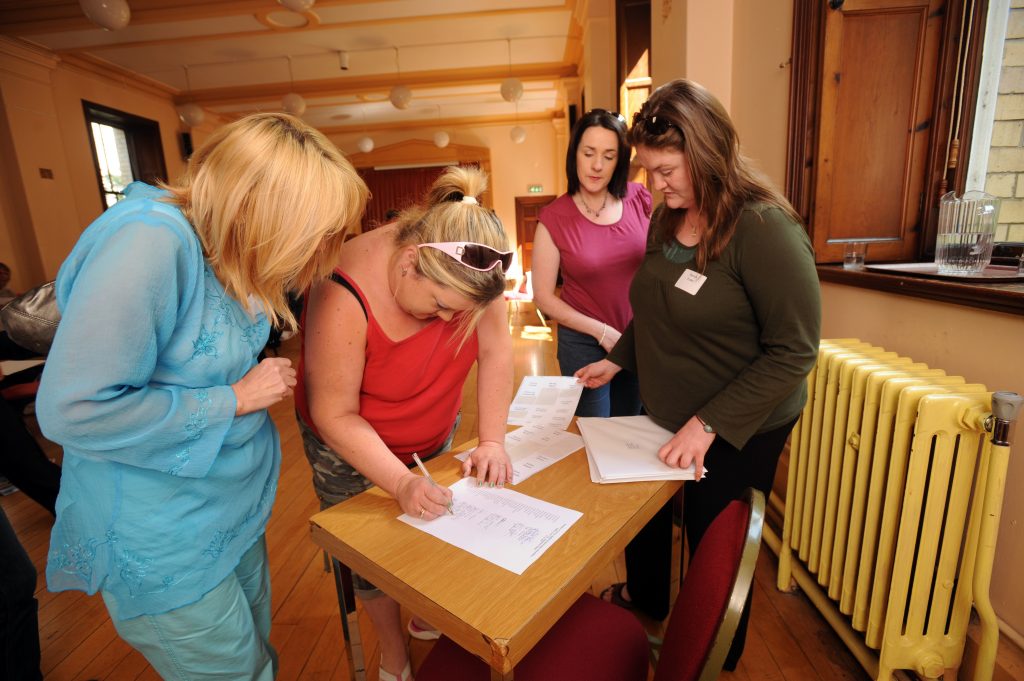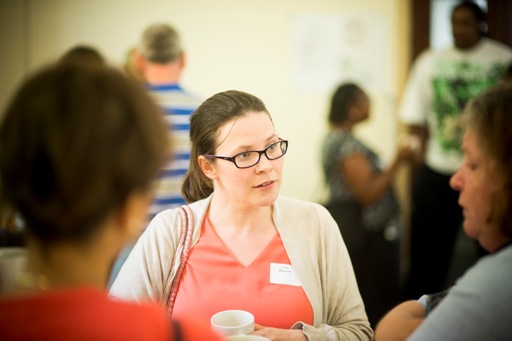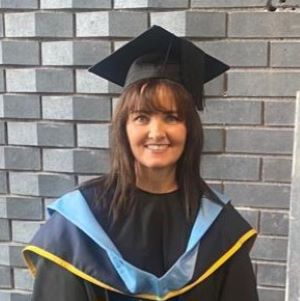QQI HET: BA in Social Care – Level 7
THIS COURSE IS APPROVED BY CORU.
- Next Commencement - September 16th, 2024
- The Application Centre is currently closed until second round offers have been completed for this course. If places still remain available in August, it will reopen for a limited time, in order to offer third round places. Please make contact with the College to express your interest.
- Interviews: will take place in person in Dublin, Monday, July 22nd 2024, 10am - 3pm for the second tranche of applicants who completed their application by July 17th.
- Find out more about Applicants' Day Interviews:
- Entry:
- photo ID is necessary and only a valid passport photo page will be accepted. Please see further details below if a passport is not available.- all applicants will undergo a short English written assessment during the interview day
- Please note: if applications for places on the course are oversubscribed, the College will assign a randomly prioritised position for each applicant on the offer list. If you are not chosen for an offer of a place from the priority list, you will receive a refund of your application fee.
For more information, contact Conor on cmurray@opentrainingcollege.com/086-0756580 (Business hours 9am-5pm).
GENERAL INFORMATION
COURSE CODE
PG24094
LOCATION
Online/Marino Institute of Education
AWARD
BA in Social Care
APPLY BY
17-07-2024
AUDIENCE
Any person interested in becoming a social care worker; persons with a relevant Level 5 qualification
DURATION
FORMAT
FEES
€5296 *Fees are now €5,296* for new entrants to year 1 with 8 instalments of €662
*The annual fee amount is inclusive of:
- The Tuition Fees (€4,299) inc. 17 workshop/webinar days in Year 1
- Administration/Online Subscription fee - €847
- QQI Registration Fee - €150
A fees instalment plan is available where students may pay up to 8 instalments spread throughout the academic year.
WHY TAKE THIS COURSE
This programme is approved by CORU. This course is designed for people who want to attain the standards of proficiency for social care workers as defined by CORU.
The learner will engage with 18 modules that explore social care practice and how it applies in various social care settings. Students will complete 800 hours of supervised practice placement, in a social care setting. (Note any student working within a social care area cannot complete either placement with their employer). This qualification is designed to lead to social care registration.



|
"Social Care Workers plan and provide professional care to vulnerable individuals and groups of all ages who experience marginalisation, disadvantage or special needs. As well as protecting and advocating for such individuals and groups, Social Care Workers professionally guide, challenge and support those entrusted to their care toward achieving their fullest potential." (Social Care Ireland 2018) |
WHAT WILL YOU LEARN
The course content is based on:
- Our expertise in the disability and broader social care area
- International best practice
- Current legislation and policy
- Ongoing feedback from course participants
- Input from graduates, professional bodies, regulatory bodies and service users
This is reflected in the choice of learning objectives, course materials and the award winning approach that has been developed to deliver the course

COURSE CONTENT
Year One |
The first year of this course introduces the novice learner to a broad understanding and the context of social care. Key values are explored along with the relevant legislation and policies. The student starts to develop their skills in the areas of communication and responding to challenging behaviour. In relation to practice, the student commences to develop their personal and professional boundaries and develop their autonomy and accountability as a social care worker.
Year One Modules (60 Credits)

Year Two |
Second year develops the learner's understanding of social care and practice supported by a supervised practice placement. The student displays safe and effective practices and the ability to use theory in practice. Regular guidance and support are provided to the student through the supervision process with the practice educator.
Year Two Modules (60 Credits)

Work Placement - Part one - Patrick's First Day
Year 2 and Year 3 include a mandatory Work Placement element of 400 hours each year. You can learn more about Work Placement by following Patrick Kiernan's journey on this series of short videos:
Year Three |
The programme's final year offers the opportunity for the learner to acquire advanced social care knowledge and skills for their practice supported by a supervised practice placement. The student is skilled in the use of evidence-informed practice. They have integrated responsibility for their practice actions, engage in reflective practice, seeking assistance and advice when necessary. The student engages in supervision, demonstrating a growth in practice confidence and openness to Continuing Professional Development.
Year Three Modules (60 Credits)

Work Placement - Part two: OTC Student Perspectives
Watch this video (9 mins) where OTC students share insights and experiences of their 400 hours of Work Placement in Year 2 of their CORU approved BA in Social Care degree qualification for Social Care Workers:
Assessment |
The course is assessed through a combination of continuous assessments, projects and written examinations. Continuous assessments may consist of assignments (i.e. essays), project work, group activities, online activities, in-class assessments, reflection and placement.

ADDITIONAL COURSE INFORMATION
Supports Provided |
What supports are provided on the Social Care degree?

Hear more from the Course Director and a Social Care Graduate |
Meet Eimear Ryan – Course Director

Meet Michelle Coe – Social Care Graduate

HOW THE COURSE WILL IMPACT YOUR CAREER

COURSE ENTRY REQUIREMENTS
- All potential applicants who are aged at least 23 years at time of application OR have successfully completed a FET (120 credits) /QQI Level 5 Certificate or Leaving Certificate* OR HET (60 credits)/QQI Level 6 Certificate.
- All applicants must also satisfactorily pass an entry interview
- All applicants must be able to gain Garda Clearance.
- International Applicants whose first language is not English must provide appropriate documentary evidence of proficiency in English, i.e. Minimum CEFRL B2+ (=IELTS 6.0) or equivalent Or can evidence successful completion of any Level 6 qualification (as validated by the NARIC procedure) studied through English, along with the successful completion of the interview phase of the application process.
*Leaving Certificate applicants will require a grade O6/H7 in five subjects; these subjects must include Maths and English or Irish. (Foundation level mathematics will meet the minimum entry requirement where a grade F2 or higher is achieved.)
Please note: the BA Social Care do not offer advanced entry pathways to Years 2 or 3 of the programme. Therefore the accreditation of prior or experiential learning will not be considered.
IMPORTANT INFORMATION:All candidates must meet the requisite criteria of the Garda/Police Vetting process. Students will be required to undergo Garda Vetting after they have been accepted onto the BA in Social Care course. |
Commitments Required by Applicants to the BA in Social Care |
Applicants are required to agree that they have noted and accept each of the following conditions (a-d):
HOW TO APPLY
Applications for this course are accepted through our Online Application Centre. To apply for the degree, you will need to:
- Satisfy the entry requirements for the programme;
- Provide a range of documents to support your application;
- Submit a personal statement explaining why you want to apply;
- Pay a non-refundable application fee of €95.
Supporting Documents and Forms to Download
You will need to provide us with a range of documents as part of your application. These are:

We generally recommend you gather together all the documents you will require to support your application before you begin but our online application system will allow you add documents as and when you have them once you've begun submitting your application. You can learn more by visiting the Online Application Centre, and view or download our Application Checklist on the link below:
Protecting Enrolled Users
The Open Training College (OTC) has approval to offer students learner protection insurance in respect of Protection of Enrolled Learners (PEL) for this course. Find out more about PEL by using the link below.
Start Making your Application
All applications are processed through our application centre where you can:
- Submit your application
- Learn about what happens after you’ve made your application
- Monitor the progress of your application
To visit the Online Application Centre, click on the link below.
HOW CAN WE HELP?
Contact us if you want to know more about the course.
Call: (+353) 86 0756580 (Business hours 9am-5pm)
Mail: Please use the contact form below
